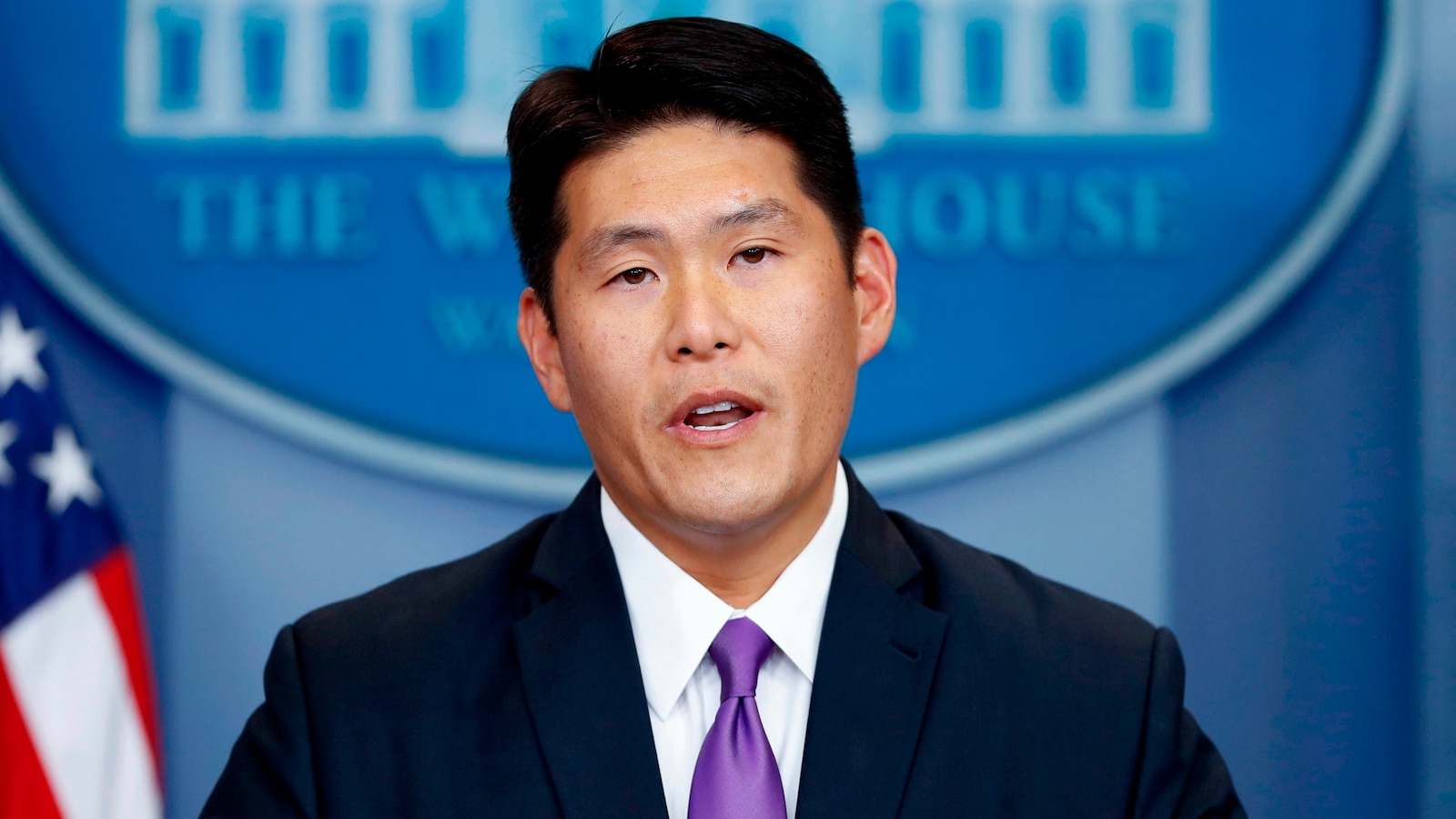Robert Hur on Tuesday will face lawmakers eager to question the findings of his yearlong probe into President Joe Biden’s handling of classified documents, an investigation that ultimately absolved the president of legal culpability but left him with a trail of political liabilities.
Hur wrote in a 388-page report published last month that he would not recommend charges against the president despite uncovering evidence that Biden “willfully retained” classified materials. In the course of explaining his rationale for that conclusion, Hur also included language critical of Biden’s mental acuity, saying that a potential jury would likely find him to be a “sympathetic, well-meaning, elderly man with a poor memory.”
President Biden and his allies welcomed Hur’s decision not to bring charges, but forcefully pushed back on his characterizations of the president’s age and memory.
Biden himself slammed prosecutors for including an anecdote about his failure to recall when his son, Beau Biden, passed away. And Bob Bauer, an attorney for Biden, called the report a “shoddy work product” that presented its conclusions in a “very misleading way.”
According to sources close to Hur, he is expected to address his decisions to include the specific anecdotes about Biden’s memory and dispute any suggestion that he violated DOJ policies by doing so.
Hur’s position was bolstered by a senior career official at the Justice Department, who — in a letter sent to Biden’s personal attorneys last month — pushed back on accusations that the language used by Hur was “gratuitous” and violated DOJ’s norms of not discussing the conduct of uncharged individuals.
“The identified language is neither gratuitous nor unduly prejudicial because it is not offered to criticize or demean the President,” Associate Deputy Attorney General Bradley Weinsheimer wrote to Biden’s legal team. “Rather, it is offered to explain Special Counsel Hur’s conclusions about the President’s state of mind in possessing and retaining classified information.”

Principal Associate Deputy Attorney General Robert Hur speaks during a press briefing at the White House in Washington, July 27, 2017.
Alex Brandon/AP, FILE
Rod Rosenstein, a former deputy attorney general and Hur ally who spoke with Hur in advance of Tuesday’s hearing, said he expected the special counsel’s commentary during the hearing “will be tied pretty closely to the substance of his report.”
“My advice to Rob was, just tell the truth and let the chips fall where they may,” Rosenstein said. “And these congressional hearings are partly directed at uncovering relevant information, but they’re mostly for show, and you need to recognize that you’re going to be criticized and might not have a fair opportunity to respond. And that’s just the way the process works.”
Republicans on the House Judiciary Committee summoned Hur to testify in a public setting to examine his findings. The panel also subpoenaed the Justice Department for recordings, transcripts, notes, and other documents pertinent to the investigation.
Hur and his team of investigators interviewed 147 witnesses and collected more than seven million documents as part of their probe. Investigators interviewed Biden for approximately five hours over the course of two days in early October, the same weekend of Hamas’ invasion of Israel.
Investigators ultimately found evidence that Biden knowingly retained classified documents — including military records about Afghanistan and personal notebooks with entries about sensitive intelligence matters — and relied on those records to pen his 2017 memoir, “Promise Me, Dad.”
At one point, Hur wrote, Biden told the ghostwriter who helped him craft his memoir, that he had “just found all the classified stuff downstairs.”
Hur’s report said investigators found documents marked classified from as far back as the 1970s, including a box labeled “International Travel 1973-1979” containing materials from Biden’s trips to Asia and Europe that included “roughly a dozen marked classified documents that are currently classified at the Secret level.”
According to the report, among the classified documents Biden retained were materials documenting his opposition to the troop surge in Afghanistan, including a classified handwritten memo he sent then-President Barack Obama over the 2009 Thanksgiving holiday.
The materials were found in “the garage, offices, and basement den in Mr. Biden’s Wilmington, Delaware home,” the report said.
Despite his critical language about Biden’s ability to recall some basic details, Hur drew a “several material distinctions” between Joe Biden’s conduct and that of former President Donald Trump, who has pleaded not guilty to a 40-count indictment filed by special counsel Jack Smith over his handling of classified materials after leaving the White House.
“Most notably, after being given multiple chances to return classified documents and avoid prosecution, Mr. Trump allegedly did the opposite,” Hur wrote in his report. “In contrast, Mr. Biden turned in classified documents to the National Archives and the Department of Justice, consented to the search of multiple locations including his homes, sat for a voluntary interview. and in other ways cooperated with the investigation.”

